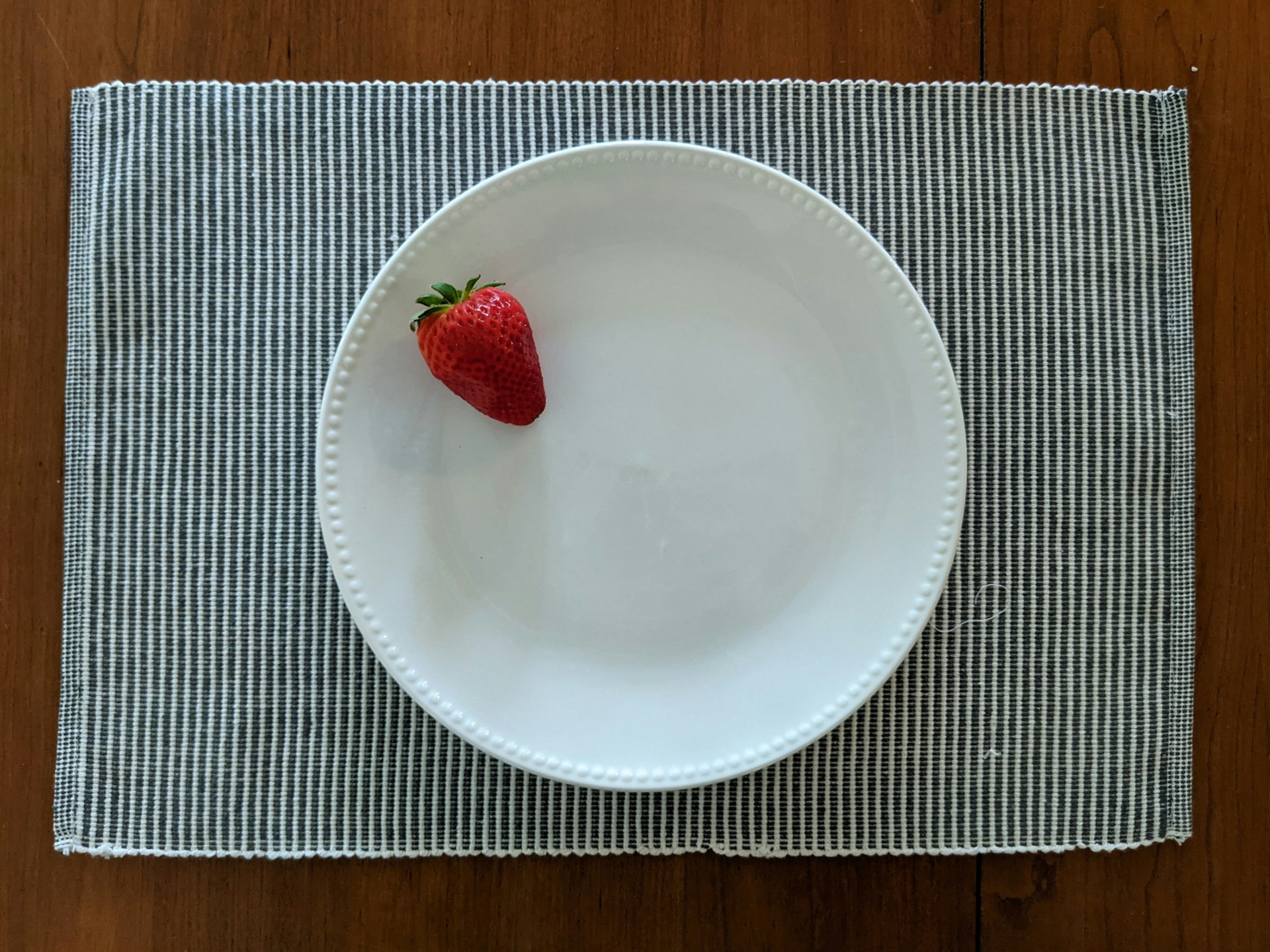An individual suffering from obesity had very few options for medical intervention aside from bariatric surgery until fairly recently. Today, researchers have discovered that the medication Ozempic, which has been used for the past 7 years to treat patients with type 2 diabetes, also promotes weight loss. It has since been approved by the FDA under the name Wegovy for the treatment of obesity and weight management. Both are the prescription medication semaglutide and are administered in different strengths depending on what it is being used for.
So, now that they have choices, someone who desires to lose weight may wonder how to choose between bariatric surgery vs Ozempic to help them on their weight loss journey. Today, we will talk about some of the ways each promotes weight loss and which is better, Ozempic or gastric sleeve, for most people.
{{cta_button}}
How Effective Is Bariatric Surgery vs Ozempic?
According to a recent review completed by the California Institute of Behavioral Neurosciences & Psychology, in 2018 approximately 252,000 individuals underwent bariatric surgery, with 61% of them undergoing gastric sleeve and 17% gastric bypass surgery.
Bariatric Surgery
Bariatric surgery has a long history of helping people lose weight and sustaining a healthier weight long term. The surgery helps promote weight loss by helping to regulate appetite and the calories introduced into the body, hormonal changes in the digestive system, and alterations in gut microbiota.
When we look at bariatric surgery vs Ozempic in terms of long-term effectiveness, unfortunately, GLP-1 medications do not have a long-standing history because they were only recently approved by the FDA in 2021 for the treatment of obesity.
Gastric bypass has been performed for over 50 years, and laparoscopic gastric sleeve was introduced in 1999, so bariatric surgery has a long history of being effective for weight loss. In fact, a 2017 study that was published in the New England Journal of Medicine found that five years after surgery, most patients kept off about 25% of their starting weight, demonstrating that bariatric surgery can be a long-term solution for weight loss.
Ozempic (Semaglutide)
Semaglutide was approved for treating obesity in 2021, so unfortunately, there is still not much data to demonstrate its long-term effectiveness.
The results of a clinical trial published in July 2024 looked at how effective semaglutide was for weight loss in individuals without diabetes over a four-year period. Those taking semaglutide experienced greater weight loss and waistline reduction compared to those on a placebo. The average weight loss experienced by the group using semaglutide was 10.5% of their starting weight. (less than ½ the weight of bariatric patients) Improvements in the group using semaglutide related to weight, BMI, and heart health were consistent across all groups, regardless of race, gender, or their starting weight.
A Comparison Of Ozempic vs Gastric Sleeve
When considering Ozempic vs gastric sleeve surgery, there are many things to think about. Everyone’s body responds differently to weight loss strategies, so there is not a one-size-fits-all solution.
Both options can be effective when used along with the permanent adoption of healthy lifestyle habits, which can include eating a low-calorie diet, avoiding processed and fast foods, staying hydrated, getting enough sleep, managing your stress levels, and staying physically active. The best option would vary for everyone depending on their personal needs and circumstances.
<table class="iksweb"><caption>Ozempic vs Gastric Sleeve</caption><tbody><tr><th>Method Of Weight Loss</th><th>Gastric Sleeve Surgery</th><th>Ozempic (Semaglutide)</th></tr><tr><td><strong>Frequency</strong></td><td>One-time surgery</td><td>Requires ongoing use</td></tr><tr><td><strong>Weight Loss Potential</strong></td><td>25% of total starting weight</td><td>10% of total starting weight</td></tr><tr><td><strong>Improvement In Metabolic Conditions</strong></td><td>Offers more weight loss potential and greater potential for improvement in metabolic conditions through greater weight loss.</td><td>Offers substantial potential in blood sugar control but offers limited potential for weight loss and metabolic improvements when used alone.</td></tr><tr><td><strong>Cost</strong></td><td>Gastric sleeve surgery is a one-time cost that is covered by most medical insurance plans.</td><td>Semaglutide medication involves ongoing costs for the duration of treatment and is not typically covered under medical insurance.</td></tr><tr><td><strong>Longevity</strong></td><td>Gastric sleeve surgery is very successful for many; however, it is important to mention that up to <a href="https://pmc.ncbi.nlm.nih.gov/articles/PMC9906605/#:~:text=In%20a%20study%20of%20300,follow%2Dup%20%5B51%5D." target="_blank" rel="noopener">76% of patients</a> regain weight within 6 years, and some require revisional surgery.</td><td>To date, it is believed that the use of semaglutide needs to be ongoing to maintain results, but studies have shown that about 50% of patients regain weight after stopping the medication. The argument can be made that half of the individuals retained their results, but without long-term data, it is hard to make the comparison between Ozempic vs gastric sleeve.</td></tr></tbody></table>
{{cta_small}}
Are Weight Loss Injections Better Than A Gastric Sleeve?
Experts widely agree that, to date, bariatric surgeries have been the most effective and long-lasting solutions for treating obesity and the conditions it causes, such as hypertension and type 2 diabetes. Diet and exercise alone only work for less than 2% of the individuals with obesity, while surgery has historically provided most who undergo it with significant weight loss.
The ongoing dilemma with surgery is that only about 1% of the individuals who meet the qualifications to be eligible for bariatric surgery actually follow through with the procedure. It may be they are afraid of surgery, or perhaps their lifestyle and responsibilities do not allow for an extended recovery. For whatever reason, bariatric surgery has been extremely underutilized since its inception.
Prescription weight loss medications such as semaglutide offer these individuals a much less invasive way to lose weight, and as a result, many candidates for surgery have opted to try Ozempic vs gastric sleeve surgery. When we hear the question, Which is better, Ozempic or gastric sleeve? The short answer is the one you will actually use.
Individuals who were not eligible for surgery or declined this option saw no other choice but to do nothing and allowed their health to continue to decline. The availability of medications like semaglutide and other GLP-1 agonists has given them a non-surgical option that has been proven effective for weight loss when combined with lifestyle modifications.
Regardless of how weight loss occurs, there is no feasible way to sustain the results without committing to permanent changes in your lifestyle. You must avoid the foods that contribute to weight gain, consistently eat a diet that is low calorie and healthy, ensure you get plenty of exercise, and make other permanent changes that promote sustaining a healthy weight.
Has Anyone Found A Better Option For Weight Loss When Comparing Bariatric Surgery vs Ozempic?
Yes! It is a combination of a non-surgical procedure called Suture Sculpt ESG (endoscopic sleeve gastroplasty) and a GLP-1 medication like semaglutide. When these were used together during a study, most patients lost about 86% of their excess weight in just a year. This adds up to 129 pounds on an individual who had a starting weight of 300 pounds, bringing them down to a much lighter 171 pounds. Depending on their gender and height, this may be enough to move their BMI into the category of a healthy weight.
Two Weight Loss Tools Work Together
Suture Sculpt ESG uses a special endoscopic procedure to gain access to the patient’s stomach from the inside and does not involve any incisions. Their stomach is reduced in size by about 75% using strategically placed stitches to limit the amount they can eat during each meal. Their stomach takes longer to empty, so they do not feel hungry as often. The GLP-1 medication works with their metabolism to make it work more efficiently and also significantly suppresses their appetite. These two weight loss tools work together to create an ongoing calorie deficit that leads to significant weight loss.
Where Can I Find Out How To Lose A Lot Of Weight Without Surgery?
To learn more about combining weight loss tools and the weight loss potential and benefits they offer, contact Batash Endoscopic Weight Loss Center. Dr. Batash and his team offer this powerful weight loss combination in New York City and the surrounding areas. In fact, many individuals travel from outside of the state to seek treatment from this well-known expert in obesity medicine. Take a look at some testimonials from our actual patients and the results they have achieved. Set up a consultation today and take the first step on the path to better health.
{{cta_button}}








